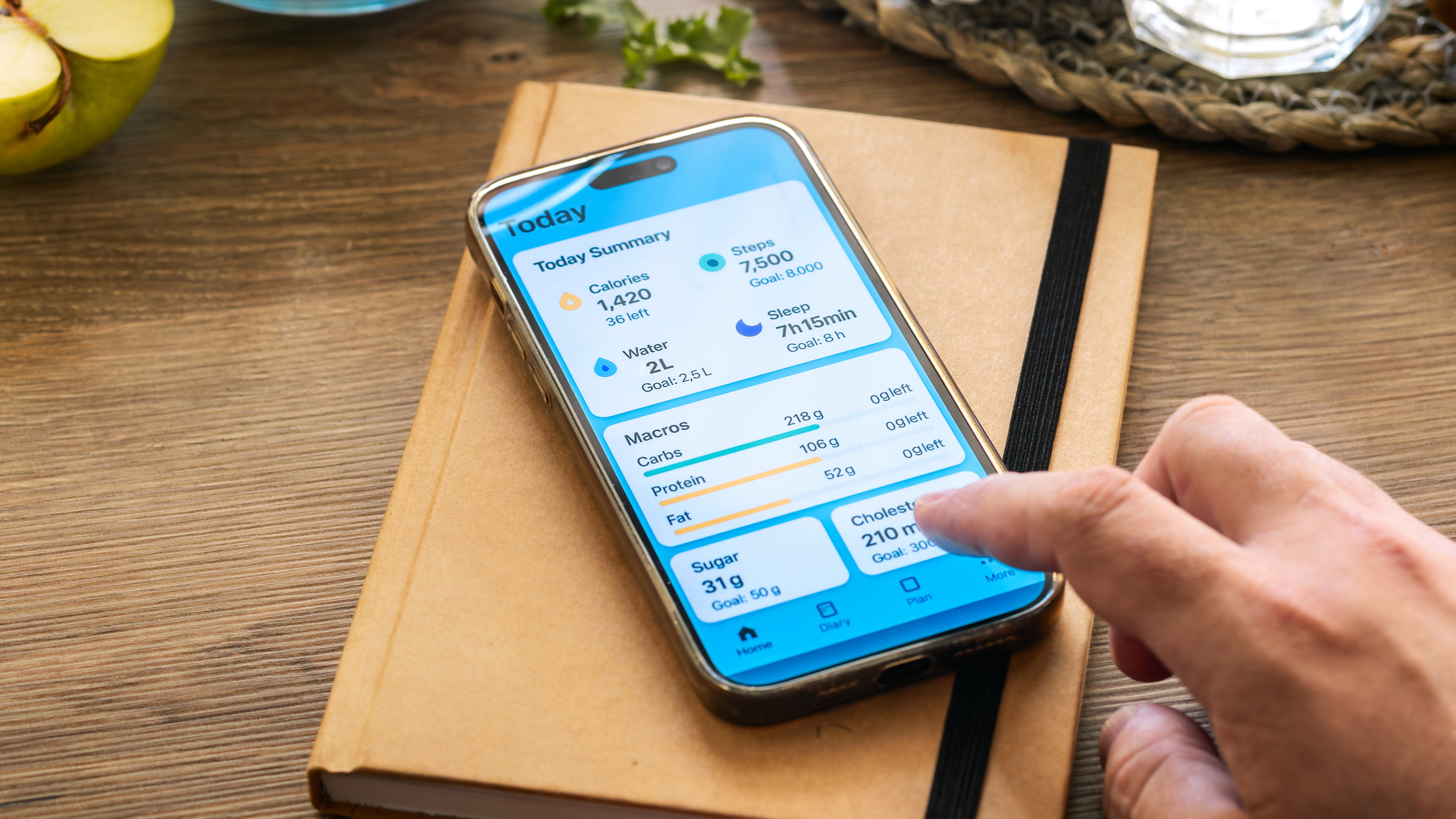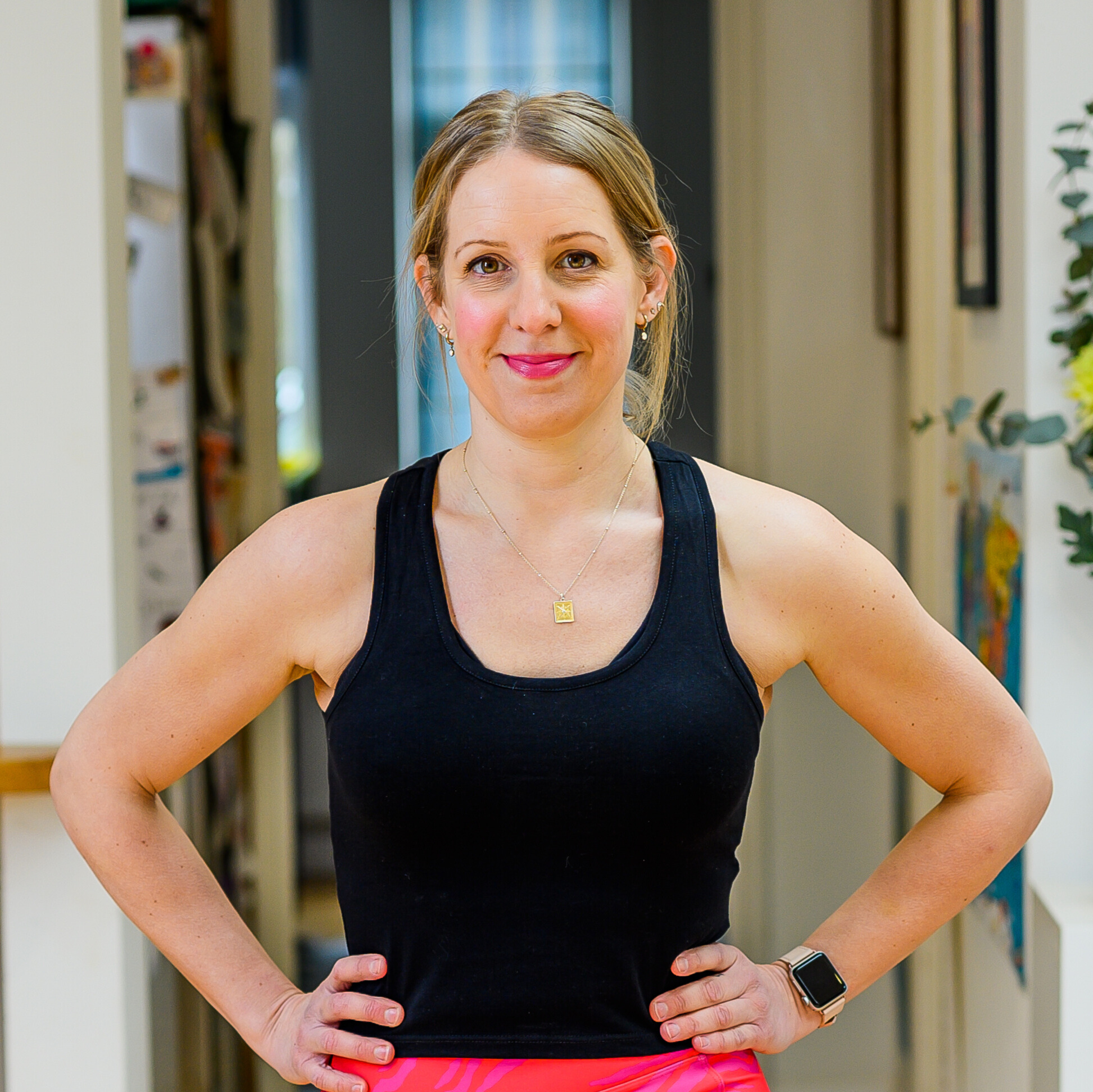How much protein should I eat to lose body fat but maintain lean muscle? This expert has the answer
How much to eat and why


Start your week with achievable workout ideas, health tips and wellbeing advice in your inbox.
You are now subscribed
Your newsletter sign-up was successful
If you’re trying to lose weight you might have heard that it’s good to eat more protein, particularly if you want to maintain lean muscle. But how much should we be eating to achieve this? And why is protein so important when it comes to dropping body fat and growing muscle?
I spoke to Dr Lena Rebecca Larsen, a nutrition specialist at More Nutrition, who explained more about how this essential macronutrient can aid weight loss. “The feeling of satiety (fullness) that protein helps promote is a major factor. This can contribute to a reduced overall calorie intake which is key for losing body fat, however, there are a number of contributory elements that influence this.
“Firstly, from a hormonal standpoint, protein affects the release of hormones that regulate appetite. It can decrease levels of the hunger hormone ghrelin, and increase levels of the hormones GLP-1 and cholecystokinin, which signal fullness.
“This feeling of fullness is also experienced due to protein as a macronutrient having a higher thermic effect of food, and so the body expends more calories during its digestion and when metabolising it.
“Plus, when you eat enough protein, this will help maintain muscle mass during a calorie deficit. Where your body might otherwise start breaking down muscle tissue for energy, it is more likely to oxidize fat effectively to burn fat for energy.”
Why protein intake is important for weight loss
“Studies have indicated that up to 25% of weight lost can come from muscle mass if protein intake is insufficient,” says Larsen.
She says when you eat enough protein during your weight loss journey, you can maintain muscle mass. And because muscles burn more calories at rest compared with fat, this can also help you lose weight and avoid regaining it later.
Start your week with achievable workout ideas, health tips and wellbeing advice in your inbox.
As you’d expect, protein requirements vary based on lots of factors including activity levels, age and body composition. Larsen has come up with this protein formula, below, so you can work out your personalised needs.
“1.6g to 2g of protein per kilogram of body weight is a formula that can be used by men and women to work out roughly how much protein you should be consuming,” she says.
“For very active people (ambitious hobby sports or competitive sports) or very overweight people, this amount should also be increased to 2.4g/kg. In bodybuilding with the aim of building muscle (and gaining weight) even higher.”
“I’d recommend trying to split your individual protein calculation evenly across meals and snacks. Also, strength training can be incredibly beneficial if you’re looking to build or maintain lean muscle mass while losing body fat.”
“The table below provides a good overview, taking into account that every person is individual and that these are average values.”
Type of person | Objective recommended protein intake (g/kg bw/day) | Literature |
|---|---|---|
Minimally active (everyday life, walks) | 1.6 - 2.0 | |
Moderately active (2-3x / week training) | 1.8 - 2.2 | |
In a calorie deficit (with training) | 2.2 - 2.4 | |
Weight training / bodybuilding | 2.0 - 2.5 | Schoenfeld, et al. (2018), Antonio, et al. (2015), Jäger, et al. (2017) |
Muscle building in diet (cutting) | 2.3 - 3.1 | |
Active ageing / prevention | ≥1.6 (up to 2.2 with sarcopenic tendency) |
Should protein intake differ between men and women?
Larsen says that getting enough protein is essential for both sexes for muscle building and regeneration, but also for hormone and enzyme production, immunity, tissue repair, feeling full and body composition.
“On average, women have a lower muscle mass and body weight than men, so the absolute requirement is often lower, but the relative requirement per kg of bodyweight can be the same or even slightly higher—depending on the cycle phase and phase of life, for example pregnancy, breastfeeding, menopause.
“According to current scientific recommendations, athletically active women generally need around 1.4-2.2g/kg body weight for optimal supply, depending on the training goal and intensity.
But she says that protein metabolism in women is significantly influenced by the female steroid hormone progesterone, which dominates in menstruating women in the second half of the cycle (known as the luteal phase).
“During menstruation a slight increase in protein is useful, even more so in menopause because the drop in oestrogen promotes muscle breakdown (sarcopenia).”
How do I know if I’m getting enough protein?
“The amount of protein we need is individual to every person, as is every metabolism and the associated ability of a body to utilize it,” says Larsen.
“Plus, we all burn different amounts of calories depending on our basal metabolic rate (how many calories you burn at rest), age, gender, genetics, the type of sport you do and the level of exertion at which it is performed.”
Larsen stresses that it’s unhelpful to compare sports—for example, comparing yoga to running—because they can be performed at different levels of intensity.
“Put simply, all these factors mean that no specific values are recommended in natural sciences in general, but rather a variance in which everyone must look individually to see what applies to them.
“For example, do you notice that you feel fuller with 1.6g protein/kg bodyweight? Do you feel fitter? Are you performing better at sports? If not, then it may be—if there is no other reason, such as a metabolic disorder or illness—that the protein content is not yet sufficient.
“Remember that the need for protein increases with age. So, a woman in her mid-50s may be surprised at how more protein is needed, even if she mainly does ‘relaxed’ sports such as walking and yoga.”
How to get more protein into your diet
“Lean meats such as chicken or turkey breast are fantastic high-protein choices, as are fish such as salmon, tuna or cod,” says Larsen.
“Tofu or pea protein are strong vegan alternatives, while legumes, including lentils and beans, are also brilliant choice,s as not only are they high in protein, but they’re high in fiber, which promotes a feeling of fullness and satisfaction.
“Eggs and dairy items—think cottage cheese or Greek yogurt—are also great low-fat options.”
Maddy Biddulph is a journalist specializing in fitness, health and wellbeing content, with 26 years in consumer media working as a writer and editor for some of the bestselling newspapers, magazines and websites in the US and UK, including Marie Claire, The Sunday Times and Women’s Health UK.
She is a CIMPSA-certified PT and works one-on-one with clients, as well as running Circuits Club classes which mixes cardio and strength training and chair-based exercise classes for seniors.
You must confirm your public display name before commenting
Please logout and then login again, you will then be prompted to enter your display name.

